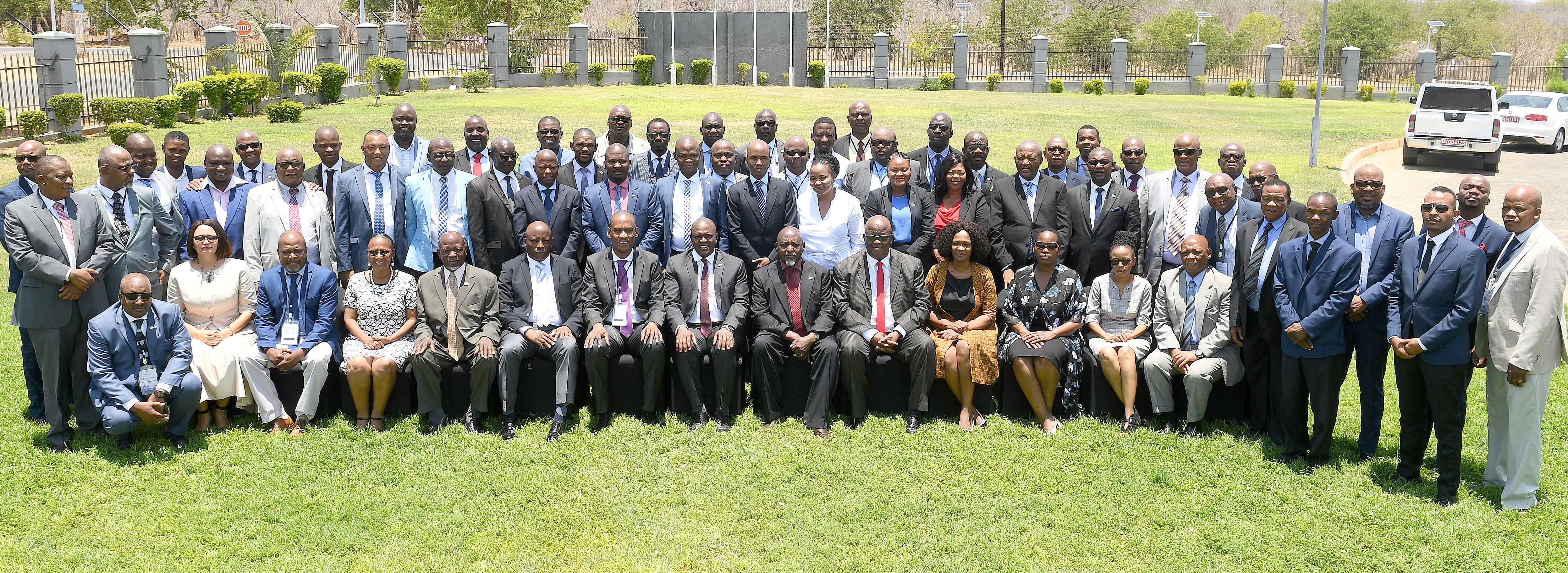This piece serves as a preamble of a series of descriptive and analytic updates from the Parliament of Botswana. It will give updates on parliamentary activities and deliberations including but not limited to questions, themes, motions and debates on motions, Bills, State of the Nation Addresses, Budget Speeches, statements by Ministers or the Leader of Opposition and assurances made by government. Parliamentary Standing/Portfolio/Select Committees and Inter-Parliamentary Committees will also be covered especially the active ones such as Public Accounts Committee, Statutory Bodies and Foreign Affairs, Defence, Justice and Security.
The highly disputed 2019 General Elections have resulted in the twelfth Parliament, sworn in on November 4 2019. An understanding of the posture of the current House between now and its end of life in 2024 or before, if the President so decides, should be traced inter alia to its demographics. This House has thirty-eight ruling party MPs and nineteen from the opposition parties; Alliance for Progressives (one), Botswana Patriotic Front (three) and Umbrella for Democratic Change (fifteen). The ruling party, as it’s normally the case has increased its members by six special MPs.
The governing party therefore dominates this House, the Executive still dominates as 40% of MPs are ministers or assistants, the Executive even outnumbers the backbench and the twelfth House is likely to be a rubber stamp of Executive or ruling party’s caucus decisions. There are four ruling party back benchers, all of them former Members of the eleventh-Parliament, who have in the past, to varying degrees, held the ruling party accountable and have differed with their government and political party. If they up their game, it may mitigate the said state of affairs. One or two Assistant Ministers may, depending on the issues, join this quartet. The debate on the citizenship motion in December is a good example.
One of the characteristics of Botswana elections, particularly in the past few elections, is that there is a high turnover of Members of Parliament, in fact single term Members are common for Botswana Parliament. The twelfth elections were no different; only two opposition Members of the eleventh Parliament returned while barely thirteen ruling party MPs came back, including the President and his Vice. Two of the eleventh Parliament MPs were brought in through Specially Elected dispensation. This means that this Parliament has about forty-three new members. It is also noted that two MPs from the 10th Parliament were elected, adding to the numbers of returning MPs. It would not be unreasonable to suggest that it is a less experienced House therefore. Consequently, there are more new cabinet ministers and or an inexperienced Executive since ministers are drawn from Parliament.
The Speakership is the most important part of Parliament. Former Attorney General and former Minister Phandu Skelemani was elected Speaker And is assisted by Mabuse Pule, MP for Mochudi East. The Speaker is a septuagenarian and his Deputy has recently retired from the civil service at Director level, the duo therefore has passed their middle-adulthood. This may be a disadvantage for development of Parliament especially its modernization into an independent and dynamic House. That these two are effectively appointed by the President, that they have served the Executive arm for decades and that they are members of the ruling party may negatively affect democratization of Parliament. It also has implications on the expected impartiality of the office. Past presidents have been choosing gatekeepers of the Executive and this tradition continues unabated, it would seem.
This Parliament is relatively youthful and educated; there are MPs with PhDs, medical degrees, in both human and animal health, undergraduate and post graduate degrees in science, engineering, social sciences including economics, political-science, law and others. There are about five former university dons including two cabinet ministers and three opposition MPs. Four lawyers including two practicing attorneys in the opposition and one in the ruling party and a former judge (probably the only Motswana who has served all the three branches of government) serve the twelfth Parliament.
Unfortunately, Batswana should manage their expectations and not think that this will be a highly effective, vibrant and productive Parliament. Education means very little in Botswana Parliament. Already, the Minister of Agriculture, in spite of his education and age, recently found himself in a quagmire of denying scientific facts on industrial hemp simply because he relied on unsubstantiated public policy position. The growth and processing of Hemp is outlawed and ironically its products are sold in local shops. The education and youthfulness weren’t useful or helpful to the Minister, he painfully appeared and sounded half-witted.
The Ruling Party caucus, Executive decisions, public policy pronouncements especially by the president will take precedence as MPs will be expected to toe the line. One other example is the negation of a motion on review of the statutory instrument number 106 of 2019 on hiring of foreigners at Khoemacau on the basis that the Executive is already doing what the motion sought. One would expect educated MPs to understand and appreciate that Parliament, as a supposed independent and separate arm, can take a resolution similar to that of the Executive, there is absolutely nothing wrong with that. It only cements support for the position.
The judiciary can make similar resolutions in judgments or statements by the Chief Justice.
More than fifteen petitions for Parliamentary elections are currently in the High Court and Court of Appeal. If the petitions are successful, this could change the structure of this Parliament and possibly result in a change of government. If this doesn’t happen and the status quo remains, it’s highly unlikely, as it will be demonstrated in this series, that this House will be fundamentally different from the past ones.
Hon. Dithapelo Keorapetse
Member of Parliament for Selibe Phikwe West




